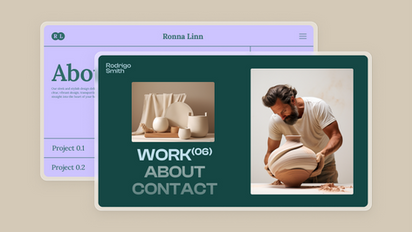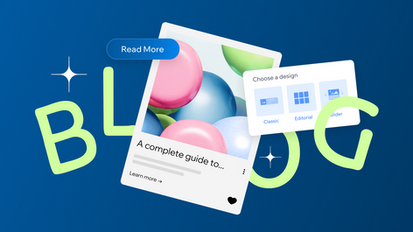Getting Started with Attorney Website Design
How to Attorney Website Design
Attorney Website Design
Web designers play a crucial role in the creation and development of websites across the internet. They are responsible for designing the layout, graphics, and overall look of a website while also ensuring that it is user-friendly and functional. With the ever-growing importance of having a strong online presence, the demand for skilled web designers continues to rise.

A Beginner’s Guide to Attorney Website Design
Attorney Website Design
When designing a website with SEO in mind, there are several key factors to consider. These factors include website structure, content, user experience, and technical aspects such as site speed and mobile-friendliness. By focusing on these elements, you can create a website that is not only visually appealing but also ranks well in search engine results.
Website structure is an important aspect of SEO web design. A well-organized site structure makes it easier for search engines to crawl and index your site, leading to better search engine rankings. A clear hierarchy of pages, with logical navigation and internal linking, helps search engines understand the content and relevance of each page. By organizing your website in a structured manner, you can improve the user experience and make it easier for visitors to navigate your site.
Content is another key factor in SEO web design. High-quality, relevant content is essential for attracting and engaging visitors, as well as improving search engine rankings. When creating content for your website, it’s important to use relevant keywords and phrases that users are likely to search for. By incorporating keywords strategically throughout your content, you can improve your chances of ranking well in search engine results.
User experience is also crucial in SEO web design. A website that is easy to navigate, loads quickly, and is mobile-friendly will provide a better experience for users and improve search engine rankings. In addition, user-friendly design elements such as clear calls to action, easily accessible contact information, and intuitive navigation menus can help increase user engagement and conversions.
Technical aspects of web design, such as site speed and mobile-friendliness, can also impact SEO. Search engines give preference to websites that load quickly and are optimized for mobile devices, so it’s important to ensure that your site is responsive and loads quickly on all devices. By optimizing images, minifying code, and using a content delivery network, you can improve site speed and user experience, leading to better search engine rankings.
What is a website builder?
A website builder is a tool that allows users to create and customize their own websites without needing to know how to code. These platforms typically offer a variety of templates and drag-and-drop tools that make it easy for even those with limited technical skills to create a website that fits their needs.
Inexpensive website builders offer affordable options for those looking to create a website on a budget. While some of these platforms may have limitations in terms of customization and functionality compared to more expensive options, they still provide a cost-effective way to get your website up and running quickly.
Features of inexpensive website builders
While the features offered by inexpensive website builders may vary, there are some common features that you can expect to find across many platforms:
1. Templates: Most website builders offer a selection of pre-designed templates that you can customize to create a unique look for your website. These templates are typically responsive, meaning they will look good on any device, from desktop computers to smartphones.
2. Drag-and-drop tools: One of the key features of website builders is their drag-and-drop functionality, which allows you to easily add and rearrange elements on your website without needing to know how to code.
3. E-commerce capabilities: Many website builders offer built-in e-commerce tools that make it easy to set up an online store and start selling products or services.
4. SEO tools: Some website builders include basic SEO tools that help you optimize your website for search engines, making it easier for potential customers to find you online.
5. Custom domain and hosting: Many website builders offer the option to purchase a custom domain and hosting directly through their platform, making it easy to get your website up and running quickly.
6. Customer support: Most website builders offer customer support to help you troubleshoot any issues or answer any questions you may have while building your website.
Best inexpensive website builders
There are many inexpensive website builders available, each offering different features and pricing options. Here are some of the best options for creating a professional website on a budget:
1. Wix: Wix is a popular website builder that offers a range of pricing plans, including a free option with basic features and paid plans starting at just $14 per month. Wix’s drag-and-drop tools and customizable templates make it easy to create a professional-looking website without any coding knowledge.
2. Weebly: Weebly is another user-friendly website builder that offers a free plan with basic features and paid plans starting at $6 per month. Weebly’s e-commerce tools and responsive templates make it a great option for small businesses looking to sell products online.
3. Squarespace: Squarespace is a visually stunning website builder that offers plans starting at $12 per month. With its modern templates and powerful customization options, Squarespace is a great option for creatives and small businesses looking to make a statement online.
4. WordPress.com: WordPress.com is a popular website builder that offers a free plan with limited features and paid plans starting at $4 per month. While WordPress.com is not as customizable as self-hosted WordPress.org, it still offers plenty of flexibility and functionality for those looking to create a professional website on a budget.

Getting Started with Attorney Website Design
Attorney Website Design
In conclusion, building recipes on your website is a fun and rewarding way to share your passion for cooking and baking with others. By starting with a unique concept, experimenting with different ingredients and flavors, considering dietary restrictions and preferences, providing detailed instructions and tips, testing your recipes, and engaging with your audience, you can create enticing and memorable dishes that will attract visitors to your website and keep them coming back for more. Happy cooking!


